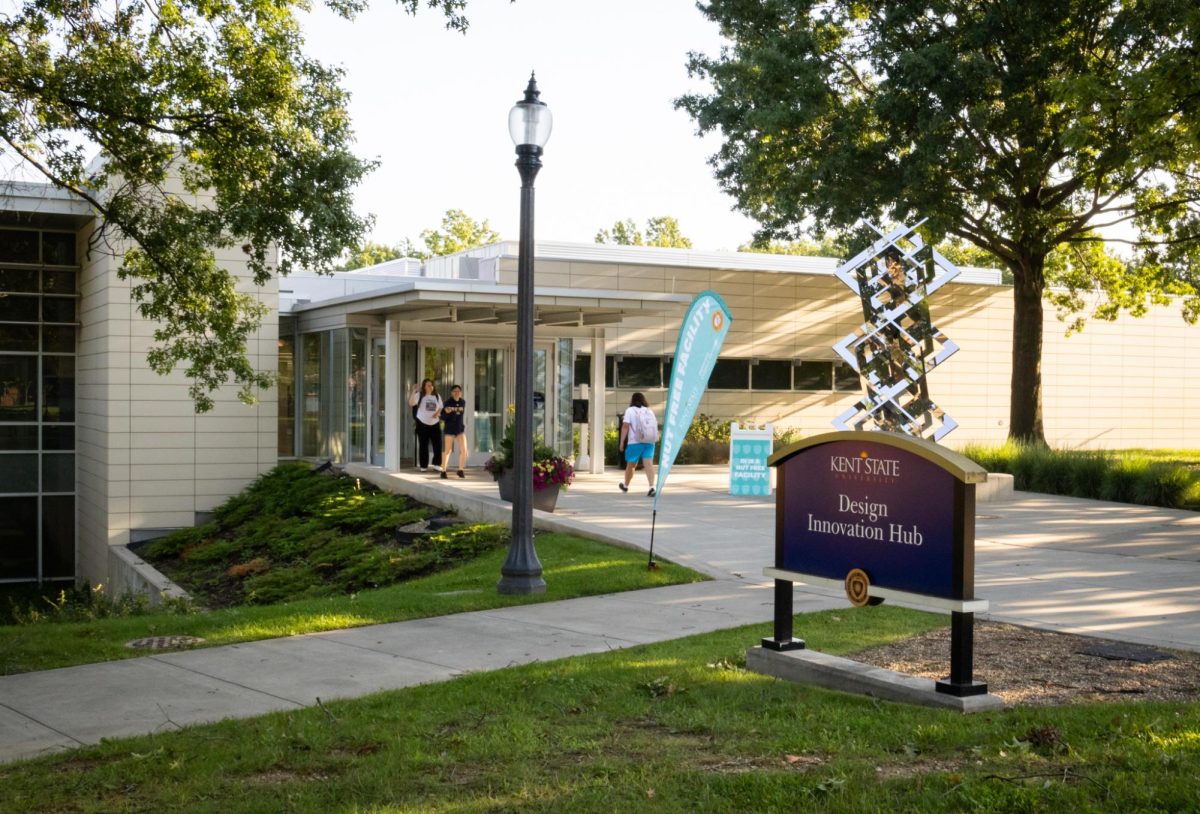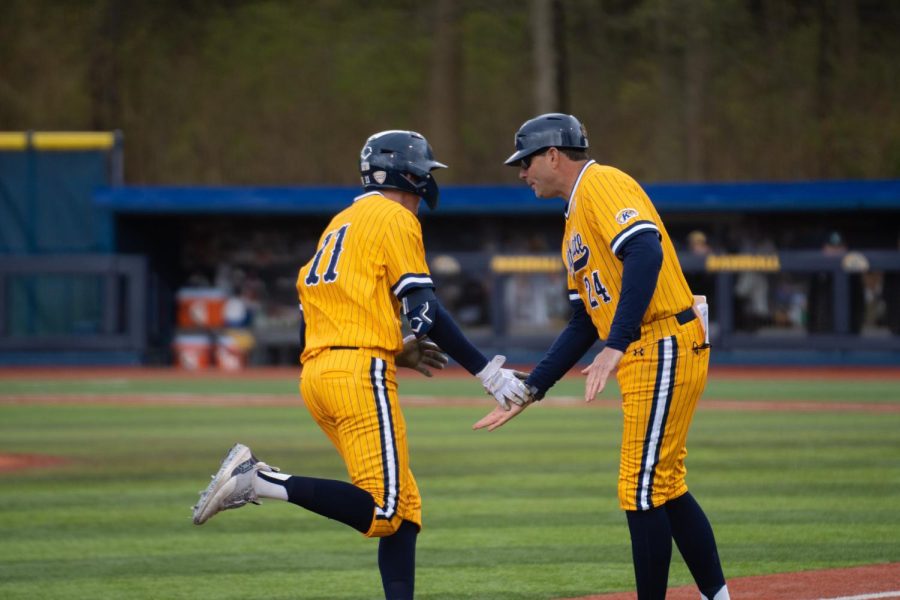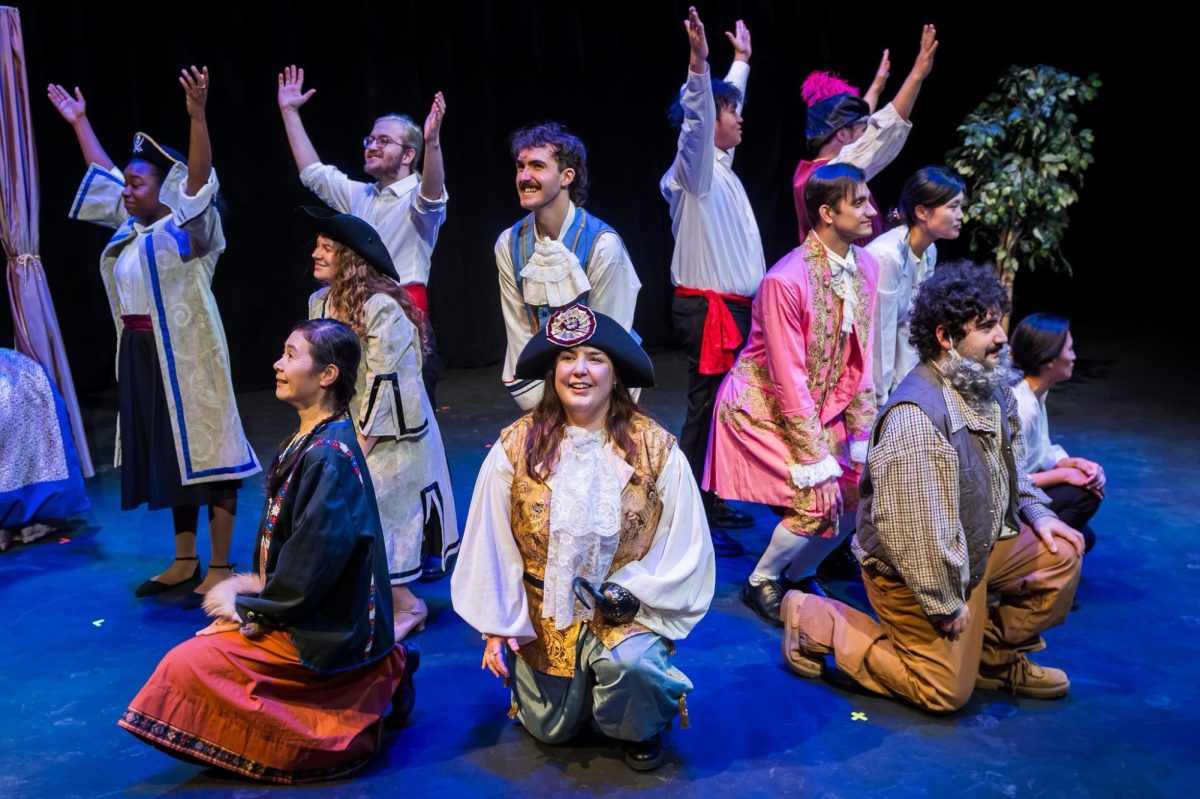During Black History Month, the dining halls on campus will serve foods from Black culture, featuring recipes submitted by students.
Edward Hardin, a residential dining chef at the Design Innovation Hub, said people can find these dishes in the DI Hub and Eastway Center dining halls on Mondays, Wednesdays and Fridays throughout the whole month, starting Feb. 2.
This is not the first time the university’s dining halls celebrated Black History Month, as last year, recipe ideas were generated by employees.
Since culinary services did not ask for these recipes early enough, they did not receive many suggestions, Hardin said.
Hardin said he uses the opportunity of Black History Month to serve dishes from Black culture to show foods he ate growing up but to also allow the same chance to students.
“I think of it as more of a competition within myself to see how I can give the best experience to the students,” he said. “This one is really good because now they have a take in it, too.”
The students who submitted recipes will also receive a spotlight at the DI Hub, sharing what the recipes mean to them and why they chose to submit them, Hardin said.
Since the DI Hub is a certified nut free facility, a few of the recipes, such as honey bun cake, were modified to contain no nuts. Other recipes, such as the Salisbury steak, were modified to feature no gluten, he said.
“That way everyone can still enjoy it and those who have that allergy can still enjoy it but that’s what we do regularly,” Hardin said.
Of the other 14 recipes, brown sugar fried chicken, joy cookies and oxtail are among the highlighted dishes, Hardin said.
“I think [the students] had a lot of good variety of stuff – I’m interested to see how it’s going to go over,” he said.
Students like Kiersten Sweet, a sophomore accounting major, and Neveah Harvey, a sophomore fashion design major, said featuring recipes from Black culture was a good idea, but they were apprehensive about the delivery.
“I feel like it’s a good way to appreciate the culture, but if it’s messed up, then what would
happen?” Sweet said.
Although Sweet and Harvey were apprehensive, Harvey said she still is remaining optimistic as to what the DI Hub will serve up.
“Food is something everybody can connect to, so I think it’s beautiful, but we’ll see if it’s good,” she said. “Usually [the DI Hub] doesn’t fail, so we’ll see.”
Others like Emma Boden, a sophomore animation game design major at the university’s Tuscarawas campus, said they were excited for the opportunity to try foods from different
cultures.
“I’m excited to try different foods and figure out different cultures and see what they have to offer,” Boden said.
Hardin said he hopes students can see how food has the ability to bring people together.
In the future, Hardin said he would like to have students come and help prepare the dishes and explain them to their fellow students, rather than doing that only himself.
“It’s just to see how food, culture and people as a whole can come together and enjoy good food,” he said.
Adriana Gasiewski is a beat reporter. Contact her at [email protected].








